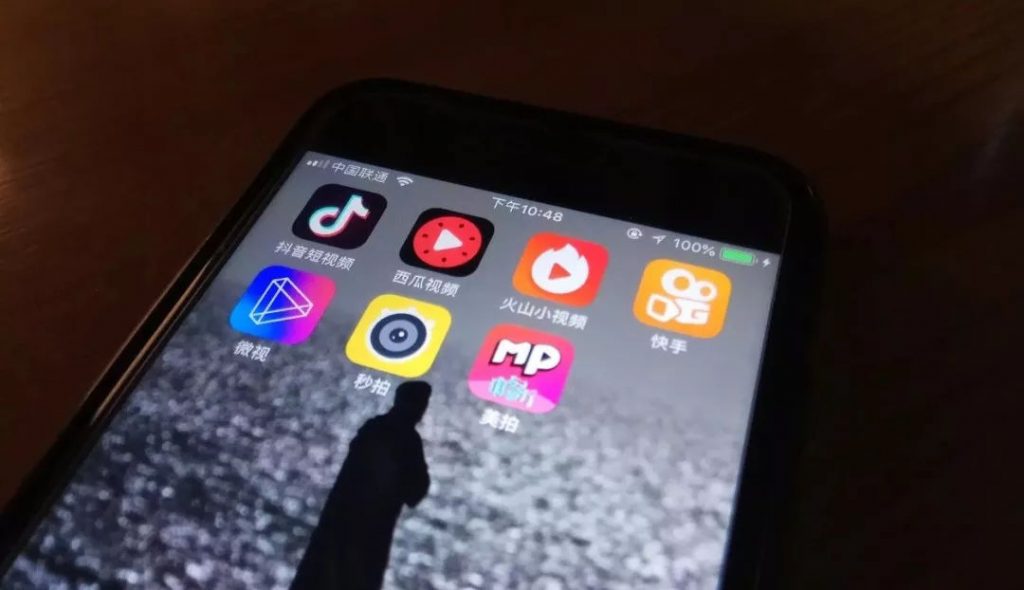Two companies join forces to create the first global digital media app that can succeed inside and out of China.
TikTok is really rocking it in the world of short video apps that sprung up in China and are now taking off in the U.S. These 15-second videos set to music feature clips of users dancing, lip-syncing, acting, performing silly stunts and doing gymnastics, often with special effects like stickers that are edited in by creators. Clips are personalized to a user’s video feed through artificial intelligence algorithms. Followers can like, comment on and respond by recording their own short videos placed alongside in the social network.
Millennials and Gen Z love this new social media outlet of creating, sharing and viewing short videos. With few voiceovers, this content easily travels globally. Launched in September 2016, TikTok and its Chinese version Douyin have reached more than 500 million users across 150 countries. TikTok became one of the world’s top downloaded iPhone apps in 2018, in the same league as Instagram, Facebook Messenger and Twitter, according to Apple’s annual tally.
ByteDance, the maker of TikTok, is acting quickly on its global ambitions. The Beijing-based company, valued at a mind-boggling $75 billion, reportedly invested up to $1 billion in November 2017 to acquire lip-sync app Musical.ly in Shanghai. The acquisition gave ByteDance one of the few China-made apps that was equally popular in Asia and in the U.S. ByteDance melded the 4-year-old Musical.ly into TikTok and rebranded it. TikTok quickly gained an additional 30 million monthly users. Additionally, the Musical.ly purchase gave ByteDance inroads into Hollywood, thanks to the former’s Viacom and NBCUniversal deals.
“[By] integrating Musical.ly’s global reach with ByteDance’s massive user base in China and key Asian markets, we are creating a significant global platform for our content creators and brands to engage with new markets,” Zhang Yiming, ByteDance’s founder and CEO, explained in a statement announcing the deal.
Just a few months earlier, ByteDance stepped up its video and entertainment profile in the U.S. market by acquiring Los Angeles-based video and photo creation app Flipagram. Topping off its 2017 investing spree, ByteDance also put $50 million in funding for Live.me, a livestreaming and short video app that has about 40 million users and is majority-owned by Chinese mobile app developer Cheetah Mobile. The deal expands ByteDance’s portfolio in mobile video and livestreaming in the U.S. and gives Live.me priority to offer livestreaming to ByteDance in overseas markets.
Cross-border breakthrough potential
These deals speak volumes about the future of digital media content. TikTok, with Musical.ly, could help create the first global digital media company that can succeed both inside and out of China, says Hans Tung, a managing partner of GGV Capital and an investor in Musical.ly. “The sum of the two companies is greater than its parts,” he points out in a post on Medium. “ByteDance is now equipped with a multicultural DNA that gives it a unique advantage in the global arena.”
The success of TikTok has sparked plenty of competition. Facebook jumped into the mobile video market in November 2018 with an app named Lasso, designed to capture the teen audience in the U.S. Like TikTok, it lets users create fun, short videos to music backdrops.
In China, ByteDance is competing with another dominant short video app, Tencent-invested Kuaishou and its 266 million monthly active users. The battle pits ByteDance CEO Zhang, a software engineer and successful serial entrepreneur, against Tencent CEO Pony Ma. The market battle is so intense that the two rivals have swapped online accusations of anti-competitive behavior.
To get more squarely in the race with TikTok and Kuaishou, both Tencent and Baidu have cranked up their own versions of short video apps. Tencent recently revived Weishi, which rose to the top of the Apple App Store in September 2018 after the social media and gaming giant let some WeChat users share and post videos from Weishi on WeChat. Baidu has entered the fray, as well, by starting video platform Haokan.
Rapid growth in the short video market
The stakes are high. Short-form videos, which are quirky and fun mini-clips featuring everything from dance lessons to dog-grooming tips, have seen rapid growth in China in recent years. By the end of March 2018, combined viewership among the top four players had grown 40 percent in three months, totaling 582 million users.
China’s superheated, short video market is forecast to quadruple in size to $11.8 billion by 2020.
Short-form video apps are catching on in the U.S. too and could steal the spotlight from established, longer video platforms such as YouTube, Facebook-owned Instagram IGTV and Snapchat’s Discover feature.
Makers of the two dominant video apps have raised enormous sums to win the market, and they’re raising additional capital. Kuaishou’s latest funding round raised $1 billion, giving it a $18 billion valuation, and was led by Tencent, which also led its previous investment of $350 million in 2017. Other mega-investors behind Kuaishou are Baidu and venture firms DCM Ventures and Sequoia Capital China. Kuaishou is reportedly in talks to raise more money at a valuation of as much as $25 billion.
From its corner, ByteDance became one of the world’s most valuable unicorn startups with a $75 billion valuation, thanks to a $3 billion investment in October 2018 from Japan’s Softbank Corp., U.S. private-equity firms General Atlantic and KKR & Co., and China-based investment firm Primavera Capital Group. That came only 10 months after ByteDance pulled in $1 billion from Sequoia Capital and CCB International to reach more than $11 billion in valuation. In late 2018, ByteDance was in talks to raise $1.45 billion for a new fund to invest in media content and artificial intelligence.
Monetization strategies
The jumbo valuations for rivals TikTok and Kuaishou reflect a craze in China—and increasingly in the West—for this new genre of short video apps and livestreaming. A recently released documentary from director Hao Wu, “People’s Republic of Desire,” captures the livestreaming mania. The film features the dreams of young Chinese viewers and creators who can earn a living—up to $100,000 a month—for their online performance shows. The money is earned when online fans send them virtual gifts, such as roses and tips.
Monetization for the short video app makers comes from taking a cut of viewers’ purchases of virtual goods for favored video creators. Online celebrities and the apps share the revenues. The apps also rake in money by embedding commerce into online mini-shops with links to sales products within the livestream. It’s a business model that is popular for online content in China but hasn’t caught on yet in the Western world, where advertising and subscriptions are the dominant revenue streams. Chinese apps are more advanced in content, for social and commerce, observes GGV Capital investor Tung.
TikTok and Kuaishou are leveraging a growing trend in China of news and entertainment apps that are spun toward rural, less affluent people. By capturing what life is like outside of China’s mainstream big cities, from farmers, to housewives, to high school pranksters, they are revolutionizing media content in China.
– This article first appeared on Reach Further, East West Bank’s digital news magazine covering U.S.-China Business.








